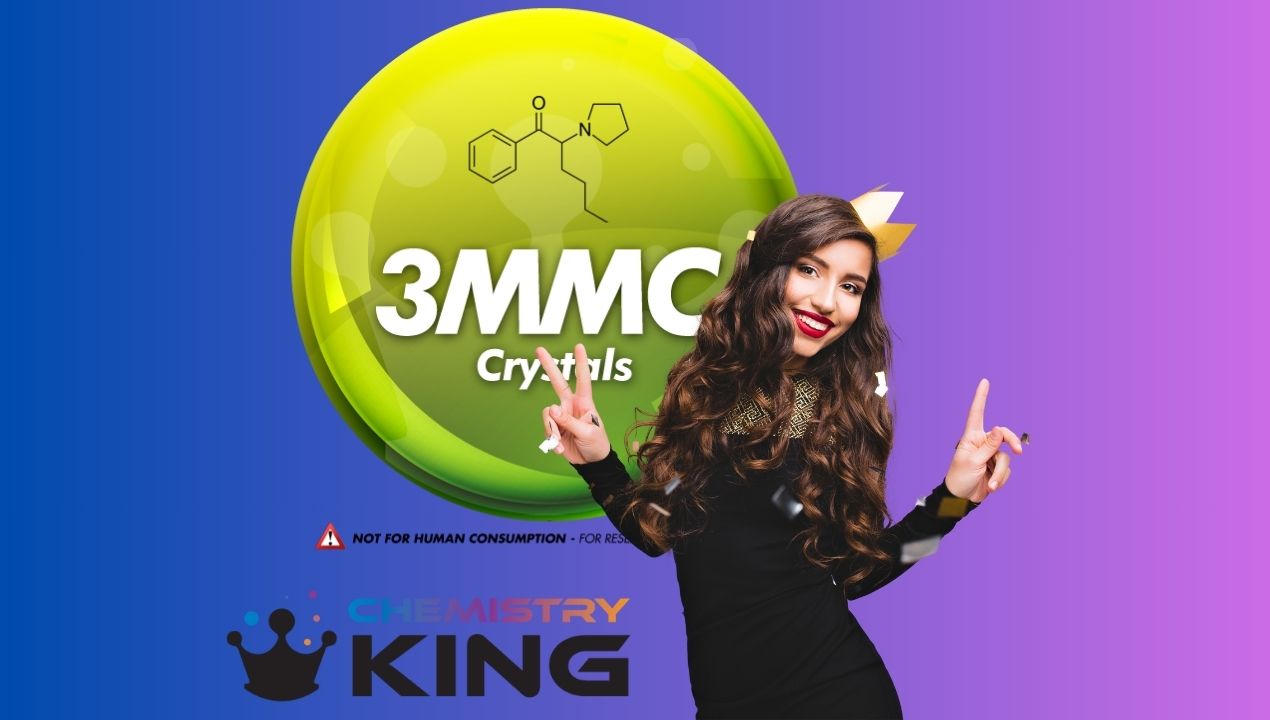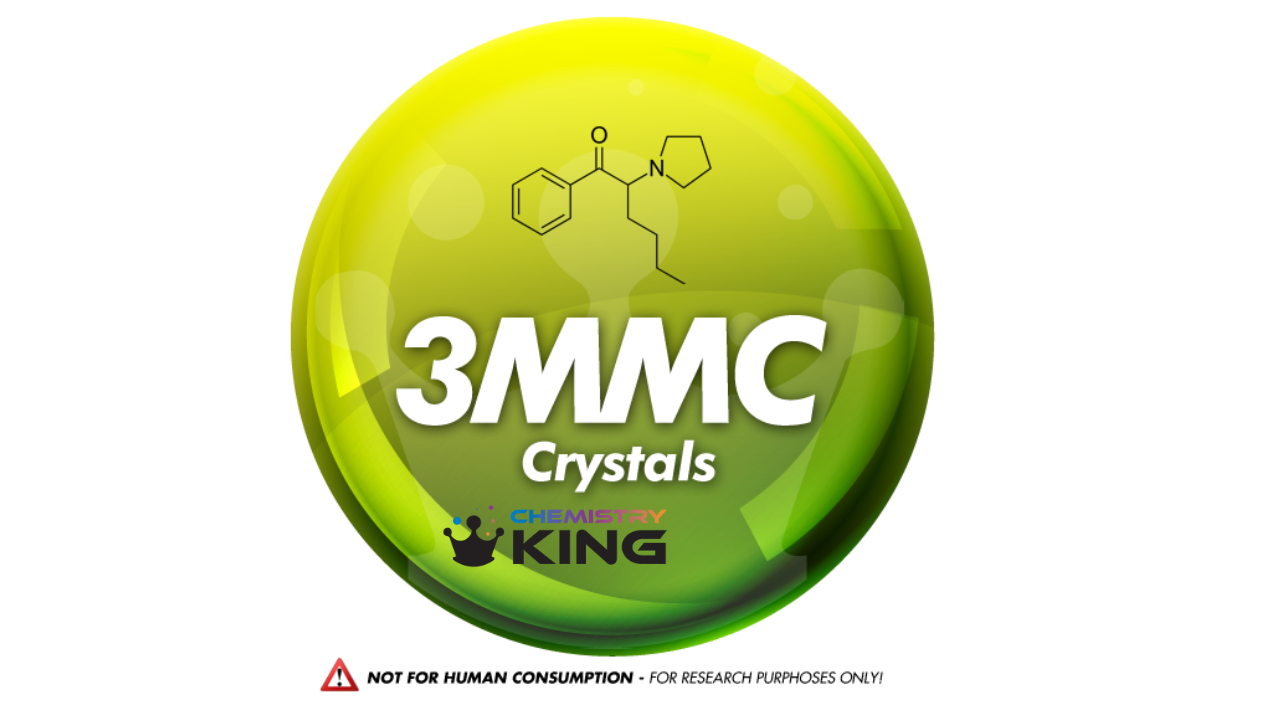Does 3MMC show up on a drug test
Premium research chemicals, lowest prices guaranteed
Does 3MMC Show Up on a Drug Test? Unpacking the Mystery with Chemistry King
If you’ve ever wandered into the fascinating world of research chemicals, you’ve likely come across 3MMC, also known as 3-Methylmethcathinone. This intriguing compound has captured the attention of researchers and curious minds alike, especially when it comes to one burning question: Does 3MMC show up on a drug test? Whether you’re diving into this topic out of scientific curiosity or just want to be informed, Chemistry King is here to help unravel the mystery.

What is 3MMC, Anyway?
Before we answer the big question, let’s take a moment to understand what 3MMC actually is. 3MMC is a synthetic stimulant from the cathinone family, which is closely related to well-known substances like MDMA and mephedrone (4MMC). It’s prized in research circles for its ability to mimic the effects of these more popular compounds, offering valuable insights into their impact on the brain and body. At Chemistry King, we stock only the highest-purity 3MMC for research purposes, ensuring that you’re working with a reliable and consistent product.
But remember, 3MMC is strictly for research use. It’s not intended for human consumption, and its use is governed by specific regulations. So, while it’s a fascinating compound to study, it’s important to respect its intended purpose.
How Do Drug Tests Work?
To understand whether 3MMC will show up on a drug test, we first need to grasp how these tests function. Drug tests are designed to detect specific substances or their metabolites (the byproducts your body creates when breaking down a drug) in various biological samples. The most common types of drug tests include:
- Urine Tests: These are the most popular and can screen for a broad range of substances. They typically detect metabolites, which can linger in your system for a while after use.
- Blood Tests: These are more precise but also more invasive. Blood tests can detect both the parent drug and its metabolites, though they generally have a shorter detection window.
- Hair Tests: These tests are like a time capsule, capturing evidence of drug use over the past few months, as substances can be embedded in hair follicles.
- Saliva Tests: Quick and easy, saliva tests are often used to detect very recent drug use.
Each of these tests has its own strengths and weaknesses, and their ability to detect 3MMC specifically will vary.

We sell our products exclusively to customers aged 18 and over, strictly for research purposes only.

So, Does 3MMC Show Up on Drug Tests?
What Affects 3MMC Detection?
- Test Type: As mentioned earlier, standard drug tests aren’t designed to detect 3MMC, but specialized tests might. If a test is specifically looking for synthetic cathinones, it’s more likely to detect 3MMC.
- Detection Window: Like other stimulants, 3MMC doesn’t stay in your system forever. Depending on the type of test, 3MMC might be detectable for a short period:
- Urine: Potentially detectable for 1-3 days after use.
- Blood: Usually detectable for a few hours up to a day.
- Hair: If 3MMC makes it into the hair, it could be detectable for up to 90 days, though this requires a specialized test.
- Saliva: Generally detectable for a few hours to a day after use.
- Individual Factors: Metabolism, dosage, and frequency of use all play a role in how long 3MMC remains detectable. People with faster metabolisms or those who use 3MMC infrequently may clear it from their systems more quickly.
- Cross-Reactivity: In some cases, drug tests can produce false positives due to cross-reactivity with similar substances. While rare, this could happen with 3MMC, especially in tests targeting amphetamines.
The Legal Landscape
While the focus here is on detection, it’s crucial to consider the legal aspects of 3MMC. In many places, 3MMC is a controlled substance or falls into a legal gray area. Using or possessing it outside of a research setting could have legal consequences, so it’s essential to stay informed about the laws in your area.
At Chemistry King, we emphasize the importance of using 3MMC responsibly and within the bounds of the law. Our products are intended solely for research purposes, and we encourage our customers to approach their studies with the utmost care and respect for regulations.

Wrapping Up with Chemistry King
So, does 3MMC show up on a drug test? It depends on the test. While standard tests might miss it, more specialized ones could catch it, especially if they’re designed to detect a wide range of synthetic stimulants. The detection window is short, but it varies depending on several factors, including the type of test and individual metabolism.
If you’re working with 3MMC in a research context, it’s crucial to understand these nuances. And when it comes to sourcing high-quality 3MMC and other research chemicals, Chemistry King is your go-to supplier. We provide rigorously tested products, ensuring that your research is based on reliable and consistent materials. Plus, with our fast and discreet shipping, your supplies will always arrive when you need them.
Remember, when it comes to research chemicals like 3MMC, knowledge is power—and Chemistry King is here to provide both the products and the information you need to conduct your research with confidence.
FAQ and How We Can Help
Frequently Asked Questions answered here; don’t hesitate to ask more!
No, 3MMC is not typically detected in standard drug tests. These tests usually screen for substances like THC, cocaine, and amphetamines. However, specialized tests designed to detect synthetic cathinones might pick up on 3MMC.
The detection window for 3MMC varies depending on the type of test. For example, urine tests might detect it for 1-3 days, while blood tests typically have a shorter detection period. If you’re using 3MMC for research, it’s crucial to consider the type of testing that might be involved.
Yes, but only under specific circumstances. Hair follicle tests can potentially detect 3MMC for up to 90 days, but this requires a highly specialized test that targets synthetic cathinones like 3MMC.


